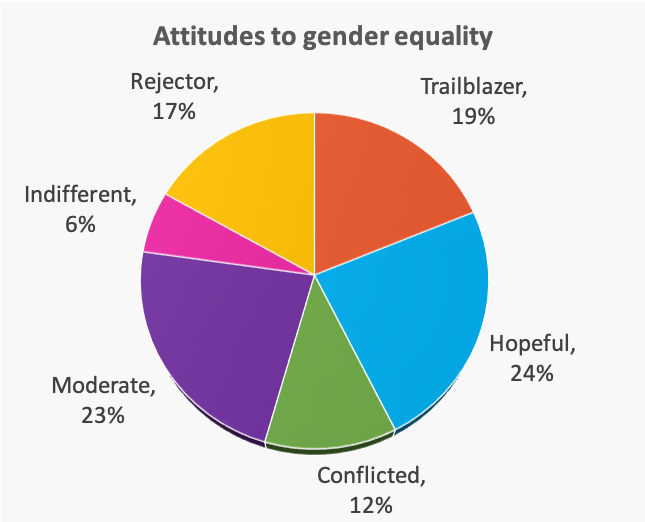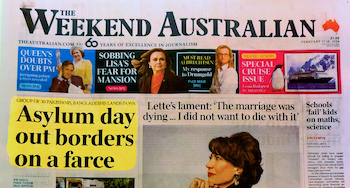Politics
Improving the way our democracy works
There is strong evidence that voters’ satisfaction with the way democracy is functioning is falling, and that much of this discontent relates to a widening distrust of voters towards those they elect.
When social gatherings turn to discussions about how to improve the state of our democracy, many suggestions come forward. For example some people call for community education in ethics and politics – a fine idea, but one that would be hard to implement (it’s hard enough to encourage people to get vaccinated against a deadly virus), and it may not necessarily be very effective, because education, in itself, does not necessarily change behaviour.
Writing in the Journal of Behavioural Economics and Social Systems – Narrowing the trust divide – Fergus Neilson reports on his research in which he analysed suggestions put forward by a selection of people in social, business, educational and political activities, in Australia, the USA and the UK. He then gathered the responses along the dimensions of Importance (the extent to which each reform would build barriers against resurgent illiberalism and autocracy) and Implementability (the chance of being implemented in the short or medium term).
Among Australian respondents, those ideas that scored well on both criteria included an anti-corruption commission and real-time disclosure of political donations. It is hardly surprising that these scored well on implementabilty, because one is in place and the other is in train. Others to score well were longer parliamentary terms, retention of compulsory voting, and facilitation of voting access.
In relation to these last two, it is worth noting that while we don’t experience the voter suppression measures used in the USA, Electoral Commission records reveal that voter turnout has fallen from about 95 percent to 90 percent in recent years, and that our enrolment rate, while at 98 percent nationally, is particularly low in Queensland and the Northern Territory.
It is notable that among the suggestions canvassed ranked-choice voting (preferential voting) does not get a mention. That’s probably because Neilson was using a field of ideas shared by UK and US commentators, as well as Australians. Preferential voting is probably the single initiative that has saved Australia from the extremely polarized winner-take-all outcomes we see in the UK and the USA.
The long path to gender equality
There was a time, not so long ago, when one could see men coming out of a hotel to deliver a drink to their wives sitting in their cars parked outside. It was only in 1965 that women won the right to drink in a public bar.
We may congratulate ourselves that we have come a long way over the last 60 years, but we still have some way to go to achieve gender equality.
Social researcher Rebecca Huntley has been involved in launching Australia’s Gender Compass, a Plan International initiative. Drawing on a sample of 2522 adults, the compass assigns respondents to six categories ranging from “Trailblazer” for whom the issue of gender equality is “salient and vital”, through to “Rejector”, for whom gender equality “has gone too far”. The results are shown in the pie chart below.

In these classifications there are predictable outcomes relating to gender, education, region and age, but they are not as strong as one may assume. For example, researchers find that Trailblazers are more likely than others to live in non-capital city regions. It reminds us that attitudinal change is slow.
Dutton’s welcome to people smugglers
Last Saturday the headlines in newspapers around the world were about Alexei Navalny’s death in one of Putin’s prison camps.

But not in The Australian. Its headline was about a small bunch of asylum-seekers who had been dumped on the Western Australian coast. The article quoted Dutton’s unsubstantiated assertions that the present government has not taken border protection seriously and that people smugglers have been able to “pick out a weak leader, a weak prime minister, and a weak minister, and that is what they have done”.
The incident, and the media response, remind us of two separate but related policy requirements – the need to eliminate the people-smuggling business, and our need to have a sound migration system.
On the first issue relating to the people smuggling trade, many are repelled by the means chosen by the Australian government to suppress it – indefinite detention of its victims in badly-run offshore camps. By most accepted moral frameworks, people who have done nothing wrong should not be subject to cruel treatment in order to achieve some desired end, even if that end is a worthy one. There are many voices speaking out against this practice: you can hear a statement from Jana Favero of the Asylum Seeker Resource Centre in a 3-minute ABC clip: Advocates accuse Dutton of dehumanising refugees.
Although there is disagreement on means, almost everyone would agree that the trade must be stopped. That is why the Prime Minister, in responding to Dutton’s statements, has reasonably accused him of talking down our border protection system.
Lest anyone believe this was an unduly partisan statement, here’s what the Navy’s Rear Admiral Brett Sonter had to say about the incident and about those who irresponsibly make false claims about weakened border protection:
The mission of Operation Sovereign Borders remains the same today as it was when it was established in 2013: protect Australia's borders, combat people smuggling in our region, and importantly, prevent people from risking their lives at sea.
Any alternate narrative will be exploited by criminal people smugglers to deceive potential irregular immigrants and convince them to risk their lives and travel to Australia by boat.
Undeterred, Dutton went on to accuse the government of defunding Border Force, an unsubstantiated and false claim. In response Border Force Commissioner Michael Outram provided figures stating that funding was at its highest level since it was established in 2015.
These statements by Sonter and Outram are nothing to do with partisan politics. Rather they are part of their work in correcting the false message Dutton has been sending to people smugglers.
On the other issue, control of immigration, the present government inherited a system that had failed miserably and had been subject to gross abuse, as reported by former Victorian Police Commissioner Christine Nixon in her review of our visa system last year.
The system failed in two serious ways. There was inadequate vetting of visa applicants, resulting in many criminals being admitted into Australia. The other failure was about inadequate follow-up on visa conditions, allowing thousands of visa overstayers to remain in Australia. With such weak border control there was no need for anyone to risk the trip through the Timor Sea on a rotting boat.
Abul Rizvi, former deputy head of the Immigration Department, gives a factual and dispassionate explanation of this most recent incident in a 9-minute ABC interview.[1] It is not a particularly significant event in the broader context of border control. (The Betoota Advocate reports its insignificance in relation to other policy issues.) He dismisses a red herring reference to a connection between this incident and the use of temporary protection visas (that’s all history). He reminds us that the government is still having to deal with more than 100 000 asylum-seekers who came to Australia by air, in a scam that ran from 2015 to 2017.
An even broader clarification of the government’s policy, and the way it implements that policy, is in a post on the ABC site by Tom Crowley: How does Australia's boat turnbacks policy work, and has it changed?. No, it hasn’t changed.
As Minister Clare O’Neil has said of Dutton “One of the greatest frauds that’s ever been perpetrated in Australian politics is Peter Dutton presenting himself as the tough guy who kept our border secure and our nation safe”. Following this latest incident she said “Comments such as those made by the Opposition Leader this weekend run directly counter to Australia's national security. This conduct undermines Operation Sovereign Borders and gives people smugglers the disinformation they need to get people on boats.”
Perhaps it’s an overstatement to refer to this incident, involving a handful of distressed and bewildered victims of a con, in terms of national security. Those who seek to do harm to Australia are not going to risk their lives on a hazardous voyage which, if survived, will result in indefinite detention. The real threat to national security was in a sloppily-run visa system, and that was on Dutton’s watch.
If Dutton wants to criticize the government he could demand that they get a move-on in re-establishing a proper immigration department (without a silly name), and go about establishing a coast guard, separate from the navy, possibly with financial support from the Western Australian government which has no shortage of fiscal capacity. Coastal security is a tough task for a navy let down by a string of poor purchasing decisions by the previous government.
1. In reporting Rizvi’s comments the ABC does the community no service with the headline “Asylum seeker boat arrival boat sparks political storm”, because Rizvi’s main message is about the need to keep partisan politics out of the incident. ↩
The end of the golden visa
We read in European news reports – Germany’s Deutsche Welle and Britain’s BBC – that Australia has axed its “golden visa” system.
These reports are in reference to what is officially called the Significant Investor Stream, or what is probably better-known by migration agents as the “golden visa” provision, that has given easy residence, with few questions asked, to anyone who could come here with $5 million, promising to invest it in certain activities.
The government has been quiet about this move, and has stated that it’s being paused rather than axed, but that’s a semantic point as explained by Abul Rizvi in an Independent Australia article, straightening out the Murdoch media’s hysterical reaction to the government’s decision: Murdoch article drums up hysteria with factual errors. There is a long backlog of applications for the 1900 places allocated to this visa class, and for now no new applications are being accepted.
As explained in an SBS interview with Minister Clare O’Neil and immigration experts, the scheme has certainly brought in people with lots of money, but it has had no positive economic impact. The people it has attracted are not entrepreneurs: rather they have tended to park their money in existing assets, and partly because of their age, they have made a significant call on government services. We do far better economically to put our efforts into attracting younger, skilled migrants.
Henrietta McNeill and Grant Walton explain the international context of the government’s moves in the Lowy Institute’s journal The Interpreter: Golden passports and visas: Two sides of the coin. Most European countries and Singapore have been getting rid of their equivalent schemes, which have attracted kleptocrats, money launderers, tax dodgers and other well-off spivs. (They also explain how Vanuatu, a tiny country desperate for foreign funds, offers a golden passport as a means to raise revenue. Will this country, with a population of 300 000, become the Cayman Islands or the Malta of the Pacific?)
Although this suspension of one class of visa, issued to only a tiny proportion of immigrants and visitors, has evoked so much publicity in other countries and among Murdoch’s writers, it is only one small part of a fundamental reform of our visa provisions.